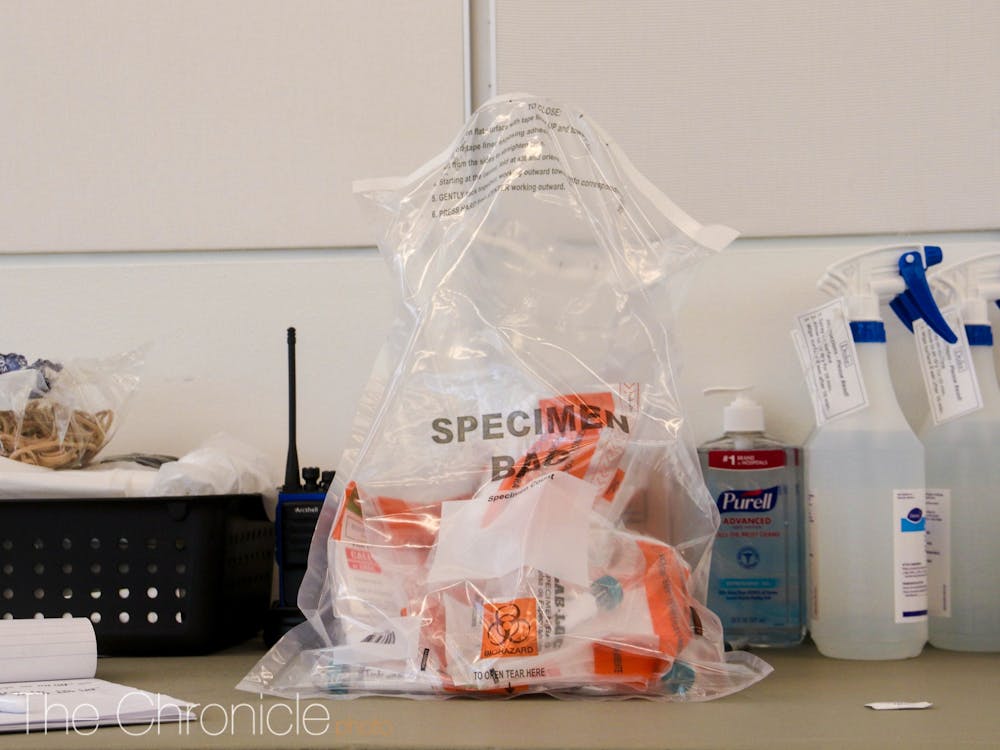Duke’s contract tracing team is calling on students to join them as volunteer contact tracers.
As of Aug. 30, the new student volunteers form part of a team of more than 300 trained contact tracers, wrote Julie Joyner, program coordinator for Healthy Duke, in an email.
According to Joyner, the main role of the new student volunteers is to notify members of the Duke community who have recently been in close contact with someone who has tested positive for COVID-19. Student volunteers will not be contacting other students, Joyner wrote.
“The idea arose as we were getting multiple requests from students (at Duke and outside of Duke) looking for internships and opportunities to gain experience in a health related field, as many of their planned experiences/jobs were put on hold due to the pandemic,” Joyner wrote.
She noted that student volunteers work during each shift with an experienced lead tracer, either in person or remotely. The contact tracing effort is operated primarily by a core team of tracers, which consists of full-time dedicated nursing staff and allied health professionals re-deployed from LIVE FOR LIFE, Duke’s employee wellness program.
Joyner encouraged students on a pre-health track, or looking for health-related experience, to volunteer. As of Aug. 30, approximately 30 pre-health students have joined the contact tracing team as volunteers, she wrote.
According to a July interview between Provost Sally Kornbluth and Carol Epling, director of Employee Occupational Health and Wellness and assistant professor in family medicine and community health, the contact tracing team gathers numerous details after an individual tests positive. These include when their symptoms started and where they were on each day 48 hours beforehand—the window they were potentially infectious to others.
Epling also addressed concerns of patient privacy during contact tracing. She said that the team does not reveal the name of the person who has the illness “unless they have given us express consent to allow us to do that.”
Instead, potential contacts describe their daily activities so that the team can determine whether interactions are considered a “close contact,” which refers to unmasked contact within six feet of the infected individual for longer than fifteen minutes, Epling said. She added that for many students and faculty, a common source of this kind of contact is during eating.
Since the first week of classes, Duke has begun conducting regular pool testing for asymptomatic students, faculty members and staff. Since then, the University has placed 329 students in precautionary quarantine as of Sep. 4, which include individuals identified through contact tracing or self-reporting, according to the Duke’s COVID-19 testing tracker.
As of Sept. 4, the University has tested seven students who were symptomatic or contact traced, all seven of whom tested positive, and 635 faculty and staff, 17 of whom tested positive.
Get The Chronicle straight to your inbox
Sign up for our weekly newsletter. Cancel at any time.

Milla Surjadi is a Trinity junior and a diversity, equity and inclusion coordinator of The Chronicle's 119th volume. She was previously editor-in-chief for Volume 118.

